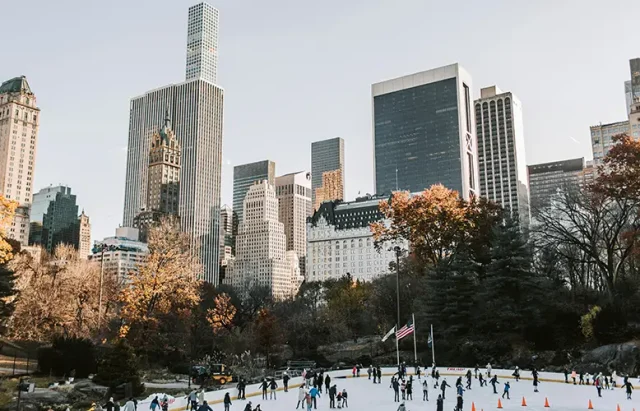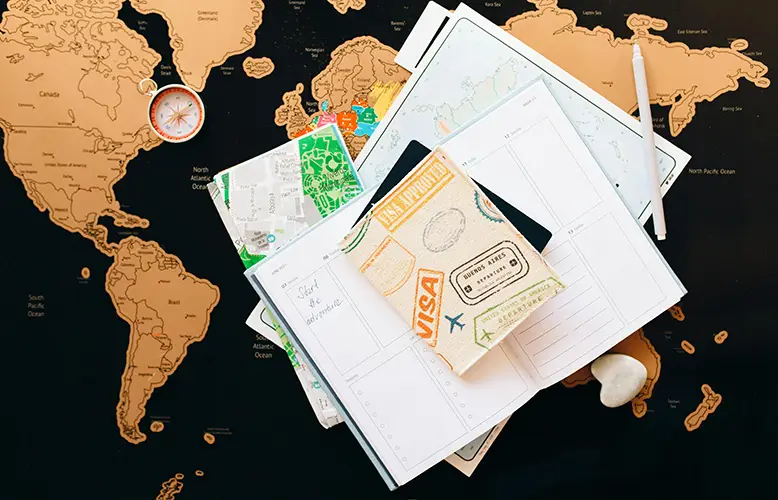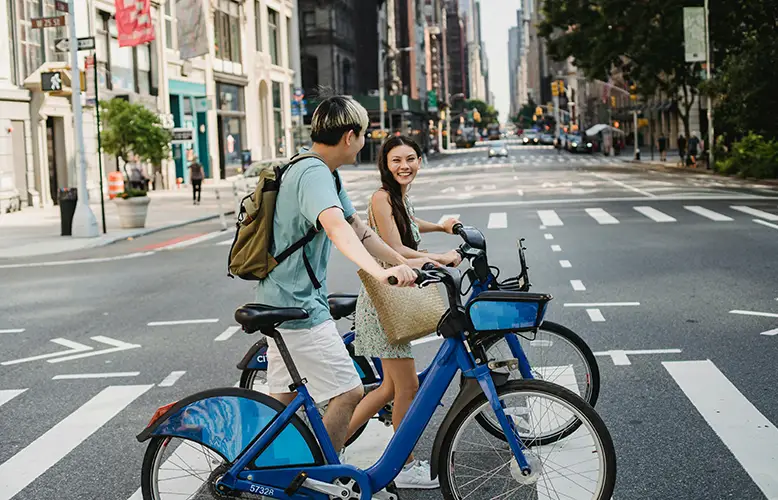
An extended stay requires more than short-term travel preparations. It involves securing proper accommodation and understanding local laws. It also means adapting to the urban lifestyle, which can be quite a shift from what you are accustomed to. Preparations for your extended stay in NYC should include a well-thought-out plan covering various aspects of daily life in the city. Of course, this includes choosing the right neighborhood, figuring out transportation, and even deciding where and how to store extra belongings to avoid clutter in smaller living spaces. This blog post aims to guide you through these essential preparations. From selecting the perfect place to live to integrating into New York’s dynamic environment, we cover all the key areas to help ensure your extended stay is as rewarding as it is memorable.
What Does an Extended Stay in NYC Entail?
An extended stay typically refers to residing in a city for a longer period than a standard vacation. It ranges from a few weeks to several months or even a year. People choose such stays for various reasons, such as business assignments, educational pursuits, or long-term tourism to explore the city in depth. Similarly, actors, artists, or scholars might find themselves in NYC for the duration of a project or a semester. The complexity of an extended stay often necessitates thorough preparation, particularly concerning legal and documentation requirements.
Legal and Documentation Necessities
- Visa requirements: Depending on your country of origin, you may require a visa for stays longer than 90 days.
- Residential permits: Specific permits might be needed for certain boroughs or residential areas.
- Registration with local authorities: Some stays require registering with local government bodies, especially for educational or business purposes.

Securing the Right Accommodation
Whether considering rentals, sublets, or serviced apartments, choosing the right place to call home can dramatically impact your experience in the city. Compare different housing options to find the best deals and most convenient locations. To ensure a practical and enjoyable stay, consider proximity to public transportation, local amenities, and work or study locations. Further, understanding the lease agreements and local laws is essential. These documents dictate your rights and responsibilities as a tenant, including deposits, lease termination, and maintenance obligations.
When securing accommodation for your extended stay in NYC, you might find that apartments can be compact, especially in popular areas. If you’re bringing more belongings or need space for seasonal gear, consider utilizing NYC Mini Storage services, which provide convenient and flexible storage options. With clean, secure, and climate-controlled units, NYC Mini Storage can be an outstanding solution for storing your personal items or professional equipment during your stay.
Financial Planning Is One of the Preparations for Your Extended Stay in NYC
The average monthly expenses in New York City for a single person, excluding rent, are around $1,300, according to Numbeo. Rent, the largest expense, can vary significantly, from about $1,800 for a studio in outer boroughs to over $3,000 in Manhattan. To save money in this pricey city, consider several strategies. Opting for less central neighborhoods can dramatically reduce your housing costs.
Similarly, taking advantage of the city’s extensive public transportation system can cut down on travel fees compared to using taxis or car rentals. Exploring local markets and cooking at home can help manage notoriously high food costs in NYC. Lastly, set aside a contingency fund to manage unexpected expenses, such as emergency medical expenses or last-minute travel needs. This proactive approach helps prevent financial stress and allows you to enjoy your stay without monetary concerns.
Transportation and Getting Around
Navigating New York City efficiently is crucial for those planning an extended stay. The city offers a robust array of transportation options. It includes an extensive subway system, numerous bus routes, and a growing network of bike lanes. For newcomers, understanding these options is vital as part of preparations for your extended stay in NYC. The MetroCard, valid on both buses and subways, offers unlimited travel passes that can be purchased for 7 or 30 days, providing substantial savings for frequent travelers.
Of course, biking is an excellent option for shorter distances or nice weather days. NYC’s layout is remarkably walkable, particularly in areas like Manhattan. Walking offers a personal experience of dynamic streetscapes but also reduces transportation costs, making it a practical component of daily life in NYC.

Maximizing Your Space: The Benefits of Renting a Storage Unit in NYC
As we have already touched on, apartments in New York are notoriously compact. Therefore, utilizing a storage unit allows you to keep your living area spacious and organized. By storing seasonal clothing, excess furniture, or even professional equipment securely off-site, you can enjoy your space without feeling overcrowded. As a matter of fact, a less cluttered home is often a more peaceful one, providing a calm retreat from the bustling city life outside.
Reputable storage facilities protect your personal and valuable items against environmental damages, particularly concerning changing seasons. But, it’s essential to research and find a quality one that suits your specific storage needs. It will keep your belongings safe and in pristine condition while you make the most of your urban living space. This careful selection helps maintain the integrity and longevity of stored items. It makes the investment into a storage unit a wise choice for both short-term convenience and long-term preservation.
Embracing New York’s Lifestyle
To embrace New York’s lifestyle, familiarize yourselves with its fast-paced nature, including the unwritten rules of subway etiquette and the general briskness of walking and talking. These subtle norms help smooth social interactions and integrate visitors into the city fabric more seamlessly. To truly experience cultural immersion, explore diverse neighborhoods. From the historic streets of Harlem to the artistic havens of Bushwick and the culinary delights of Chinatown and Little Italy, each area offers unique insights into the rich tapestry of cultures.
Attending local events and festivals provides more profound connections with these communities. In contrast, actively participating in community groups or classes can also facilitate connections with locals. Whether it’s a fitness class at a local gym, a cooking workshop, or a volunteer opportunity, engaging with residents and sharing experiences can enhance your stay, making New York feel more like home.

Staying Well During Your Stay
Register with a local healthcare provider and secure health insurance that adequately covers you. Familiarize yourself with the locations of the nearest hospitals and clinics. In New York City, you can maintain safety by being vigilant and using common sense. Always be aware of your surroundings, especially at night, and keep your belongings secure. Avoid less-frequented areas after dark and stay informed about any safety advisories for your neighborhood.
Also, prepare for emergencies. New York is well-equipped with public safety announcements and systems. Make a habit of noting emergency exits and plans in buildings and public transportation. Keep a basic emergency kit in your home. Include items like a flashlight, batteries, a first-aid kit, water supply, and non-perishable food.
Conclusion
To make the most of it, you should thoroughly consider all preparations for your extended stay in NYC. From choosing the appropriate accommodation and managing your budget to understanding local transportation and integrating into the culture, each step is crucial for a fulfilling experience. Of course, take every opportunity to explore the diverse neighborhoods and partake in the unique cultural, culinary, and recreational activities that New York offers. In short, embrace the city’s dynamic environment with an open mind and proactive spirit, and you’ll find your extended stay successful and immensely rewarding.





